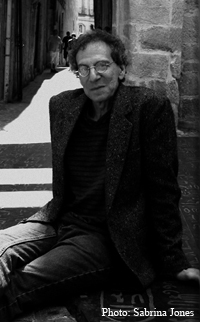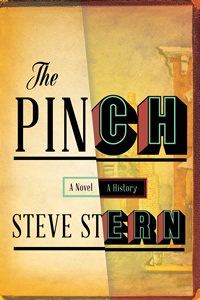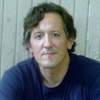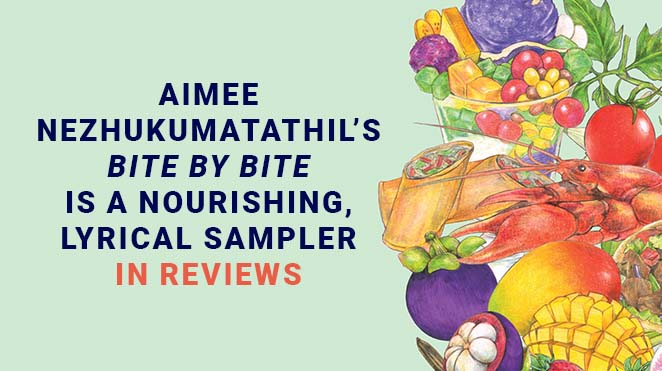The central theme of Steve Stern’s fiction is an engagement with the rich tradition of Jewish mysticism which was largely abandoned after the great wave of immigration, around the turn of the twentieth century, when European Jews began the process of assimilating into American culture. Stern is himself a product of this assimilation: though he grew up Jewish in Memphis, his religious training was purged of any mystical elements that might draw the ire and suspicion of the Christian mainstream.
 As he told Chapter 16 in a 2011 interview, Stern did not discover the history of the Pinch—once a vibrant, predominately Jewish area of Memphis—until his mid-thirties, when he went to work for the Center for Southern Folklore. Stunned at the fertile culture and history which he’d missed growing up, he began researching and writing in earnest about the lost history of North Main Street, publishing a body of work that has led the The New York Times to refer to him as “the Poet Laureate of Tennessee Jews.”
As he told Chapter 16 in a 2011 interview, Stern did not discover the history of the Pinch—once a vibrant, predominately Jewish area of Memphis—until his mid-thirties, when he went to work for the Center for Southern Folklore. Stunned at the fertile culture and history which he’d missed growing up, he began researching and writing in earnest about the lost history of North Main Street, publishing a body of work that has led the The New York Times to refer to him as “the Poet Laureate of Tennessee Jews.”
In The Pinch, a novel that will be released next week, Stern continues his exploration of Jewish culture in Tennessee with verve, originality, and frequently raucous humor. The present action of the narrative takes place in early 1968. The narrator is Lenny Sklarew, a gangly deadbeat living on North Main Street, which the Jewish community had abandoned by the 60s. Aimless and usually intoxicated on various illicit substances, Lenny ekes out a meager living selling drugs and working in the Book Asylum, a used bookstore, while he waits to be drafted. “I had a thing in those days for offbeat books, especially ones written by outlaw authors hell-bent on destroying themselves at an early age,” Lenny says. “While that wasn’t exactly my plan, neither did I rule out the possibility.”
 One day Lenny happens upon a musty copy of The Pinch: A History. As he begins to read, he discovers that he himself is one of its characters. Gobsmacked, Lenny alerts Avrom, the store’s proprietor, to his extraordinary discovery. “Boychik, you ain’t in your farblundjit life doing squat,” Avrom says. “So maybe in the book you’re a hero.”
One day Lenny happens upon a musty copy of The Pinch: A History. As he begins to read, he discovers that he himself is one of its characters. Gobsmacked, Lenny alerts Avrom, the store’s proprietor, to his extraordinary discovery. “Boychik, you ain’t in your farblundjit life doing squat,” Avrom says. “So maybe in the book you’re a hero.”
Naturally Lenny becomes obsessed with discovering the secret of how he came to appear in a fifty-year-old book about the old Jewish ghetto in which he seems to be the last remaining Jew. Henceforth the narrative is divided between Lenny’s readings of the mysterious book and his comic misadventures as he pursues an awkward affair with Rachel, a folklorist studying the history of the Pinch, and follows his favorite local band, Velveeta and the Psychopimps.
As the novel progresses, however, Lenny’s story merges with that of Muni Pinsker—the author of The Pinch: A History —and a colorful cast of Jews in early-twentieth-century Memphis. Muni arrives in 1912, direct from Siberia, thanks to the generosity of his uncle, Pinchas Pin, who introduces him to the strange new world of North Main Street. Muni’s obsessions are divided between the peculiarities of the Pinch and Jenny Bashrig, a young tightrope walker known as La Funambula. The book he produces turns out to be a magical-realistic fable in which time becomes elastic—the story of Europe’s Jews before the pogroms merges with the diaspora in which Jews scattered across Great Britain and the United States, forming neighborhood communities like the Pinch.
In one of many memorable set pieces, Muni and Jenny enjoy a hasty copulation high in a treetop, just seconds before a massive earthquake uproots the tree:
[T]heir shuddering embrace, Muni suddenly realized, had generated a contagion that prompted in its turn a universal trembling. Opening his eyes he saw from Jenny’s expression that she had reached the same frightened conclusion: they had gone too far and the impact of their union had unseated nature itself. Or was it the reverse? Nature was settling scores with the wayward lovers. Whatever the case, the great patriarch oak had become unstable; tilting slowly, it groaned as if mortally wounded, wrenching its roots free of the planet to which it was moored, and with a sound like a nail pried from the vault of heaven, it started to topple. The lovers, holding on to one another now for dear life, declared their mutual devotion even as they rode the tree down its windy decline toward the earth which gaped open to receive them.
Muni’s desperate pondering of the metaphysical implications raised by this encounter reflects the larger philosophical and thematic concerns of the novel as a whole. Steve Stern seems to be arguing—with terrific energy and urgency—that something essential is missing from a world that dismisses the possibilities of mystery and magic and, indeed, miracle. A searcher like Lenny Sklarew, riding out the end of a decade whose promises have turned hollow, desperately needs to discover that lost sense of wonder to restore his very soul.
The genius stroke of The Pinch comes in the way Stern so deftly manages to connect the lost history of the Pinch to the tumult of the late 1960s, especially in Memphis. The assassination of Martin Luther King Jr. figures prominently in the novel’s poignant denouement, suggesting that the struggles Stern is concerned with go far beyond the experience of a single community. In The Pinch, there are visitations from the Angel of Death and dire whisperings from the next world, but there is also humor and pathos to be found in the present as well as the past, along with a way forward into the future. The Pinch is a rich, stylistically virtuosic, often riotously funny tribute to the history of Jews in the twentieth-century American South. And, as in Faulkner’s Yoknapatawpha, there are strong hints in Steve Stern’s Pinch of something universal and transcendent.

Ed Tarkington holds a B.A. from Furman University, an M.A. from the University of Virginia, and a Ph.D. from the creative-writing program at Florida State University. His debut novel, Only Love Can Break Your Heart, will be published by Algonquin Books in January 2016. He lives in Nashville.
Tagged: Fiction





